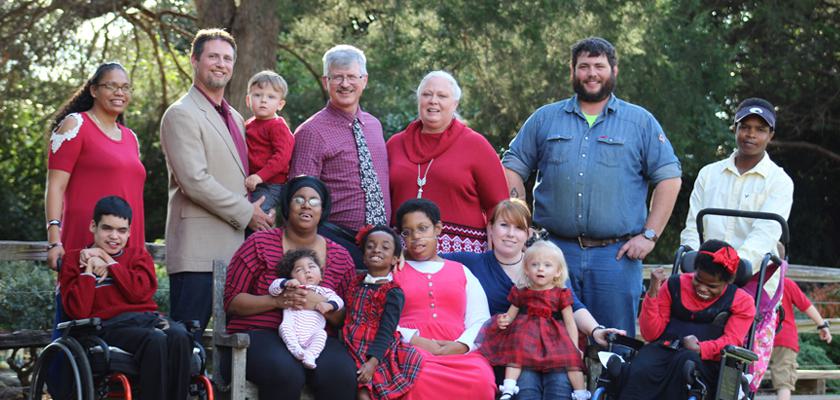At a young age, Johnna Breland felt called to be a doctor, but as she grew up, that career never seemed to work out. It was only later that Breland realized God placed that call on her heart for another reason.
In her teenage years, Breland was told that for medical reasons she probably would never have children. As she was dating her now-husband, Rodney, they thought about fostering and adopting down the road. It only made sense, as Johnna Breland’s only sibling had joined her family through adoption.
After several miscarriages, the couple had two biological children, but they never forgot those early conversations. So, when their boys were three and one, the Brelands decided to foster their first child — Beverly. Before Beverly joined the Brelands, the social worker had two warnings for them: “Beverly is African American, and she needs heart surgery.”
“This is not an issue,” Breland, who is white, told the social worker.
Joined by adoption
She and Rodney not only fostered Beverly, they eventually adopted her. She was part of their family for 31 years until her death in 2020 due to COVID-19.
Beverly’s adoption put the Brelands on a path of growing their family and following the Lord’s leadership at every step. Over the years, 10 more children joined the Brelands through adoption, making them a party of 15.
Using her academic background in science and her extensive volunteer experience, Breland has learned much about medical and disability issues — knowledge she uses to help her children with special medical needs. She also serves as president of The Arc of Alabama, a nonprofit that supports individuals with cognitive, intellectual and developmental disabilities and their families.
“Looking back, God knew,” said Breland in tears. “He had it all laid out. My whole life all I thought about was being a doctor, and God knew what He needed to do. I can’t imagine life without these kiddos.”
While Rodney often focuses primarily on the children’s day-to-day needs, Johnna sees to their medical needs.
“Specialists said [some of the children] wouldn’t survive, but they are still alive,” Breland said, noting that as one of her biggest joys throughout the process. “One child was told he could never talk or walk and now he makes jokes and walks with assistance.”
Daughter Aimee, 24, who has dyslexia and was born with fetal alcohol spectrum disorder, earned a degree in Christian ministries at Liberty University, graduating with a 4.0 GPA, and recently started a master’s program in theological studies at Midwestern Baptist Theological Seminary.
Bobby, 29, has intellectual and developmental disabilities, vision and mobility impairments and depends on a feeding tube. Thanks to his parents’ persistence, Bobby was the first student with such disabilities “included in the Decatur City School System in a regular classroom with regular peers,” Breland said.
Their children “all have a purpose,” and the Breland’s have done their best to provide them with the best care and opportunities available. They encourage others to consider if God might use them in a similar way.
Churches getting involved
“If we believe in pro-life then we need to open up our homes to these children,” Breland said. “Support these birth families in any way we can or find homes for them.”
Here are five ways she said churches and ministers can help families that are fostering, adopting or have children with medical issues:
“Make them a part of your church family,” Breland emphasized. “The children are normally coming out of trauma and need the understanding, love and support of a church family.”
To those who are fostering or adopting, Breland said having a good support system is imperative.
“I can’t imagine doing this and not being a Christian,” she admitted. “I can’t imagine this without my faith.”
This story republished with permission from TAB Media Group.










